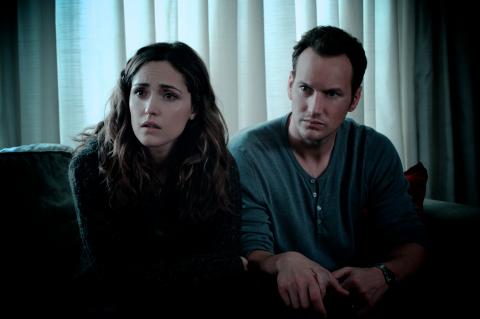-
Wondering which camera, gear, computer, or software to buy? Ask in our Gear Guide.
You are using an out of date browser. It may not display this or other websites correctly.
You should upgrade or use an alternative browser.
You should upgrade or use an alternative browser.
Character Sketch?
- Thread starter mrbigchin
- Start date
First, you have to understand that whatever you write in a screenplay IS NOT going to be strictly adhered to by the eventual director, producer, studio, and actor(s)/casting.
Furthermore, limitations in budgets (most likely down, but sometimes up), locations will change how the story goes, as well as how the editor cuts it, distributor demands and MPAA decisions.
Watch a few dozen director/producer/actor/writer commentaries on DVDs and listen for how all of these elements are changed from the "final" studio approved screenplay.
Then watch deleted scenes, consider the cost of these per minute (total reported budget divided by released feature time + deleted scenes) that were written, shot, edited but never aired due to content or pacing.
A lot of very smart and experienced people spent tens of thousands of dollars on sequences that were never used.
What does that alone say about "the all mighty screeenplay"?
Finally, consider the subtle differences between MPAA rated releases, unrated cuts, and "Director Cuts".
Material was left on the floor, so to speak, in some of these.
Two of my favorite examples are SALT & THE EXPENDABLES.
Read their wiki casting & production briefs and watch their DVD extras with a keen eye/ear on production.
Now, with all of this under consideration, your fantastically brief intro description should provide an easily identifiable crude stereotype or trope that will shortly and eventually be defined/refined by both action and dialog of both the character and others around them.
(One of my favorite spottings in films is when other characters instantly provide powerful credit to a character by implying/suggesting a history not proven or demonstrated on screen).
In other words, keep descriptions a few words brief, not even sentences.
There's no sense in defining attributes destined to be lost in production.

http://www.imsdb.com/scripts/Limitless.html

http://www.imsdb.com/scripts/Larry-Crowne.html
A pair of the more lengthy descriptions:

http://www.imsdb.com/scripts/Insidious.html

http://www.imsdb.com/scripts/Horrible-Bosses.html

http://www.imsdb.com/scripts/Help,-The.html
This is nice:
http://www.imsdb.com/scripts/Drive.html
Oh! Wait! That's not even a description.
Ha!
Get the idea?
Keep it brief.
http://www.imsdb.com/latest/
Furthermore, limitations in budgets (most likely down, but sometimes up), locations will change how the story goes, as well as how the editor cuts it, distributor demands and MPAA decisions.
Watch a few dozen director/producer/actor/writer commentaries on DVDs and listen for how all of these elements are changed from the "final" studio approved screenplay.
Then watch deleted scenes, consider the cost of these per minute (total reported budget divided by released feature time + deleted scenes) that were written, shot, edited but never aired due to content or pacing.
A lot of very smart and experienced people spent tens of thousands of dollars on sequences that were never used.
What does that alone say about "the all mighty screeenplay"?
Finally, consider the subtle differences between MPAA rated releases, unrated cuts, and "Director Cuts".
Material was left on the floor, so to speak, in some of these.
Two of my favorite examples are SALT & THE EXPENDABLES.
Read their wiki casting & production briefs and watch their DVD extras with a keen eye/ear on production.
Now, with all of this under consideration, your fantastically brief intro description should provide an easily identifiable crude stereotype or trope that will shortly and eventually be defined/refined by both action and dialog of both the character and others around them.
(One of my favorite spottings in films is when other characters instantly provide powerful credit to a character by implying/suggesting a history not proven or demonstrated on screen).
In other words, keep descriptions a few words brief, not even sentences.
There's no sense in defining attributes destined to be lost in production.
Code:
EDDIE MORGAN, 30's, lean and stylish, standing on the exterior ledge of his
multimillion-dollar terrace.
http://www.imsdb.com/scripts/Limitless.html
Code:
LARRY CROWNE - A man as reliable (and predictable) as that rising sun.
http://www.imsdb.com/scripts/Larry-Crowne.html
A pair of the more lengthy descriptions:
Code:
RENAI (pronounced Renee) LAMBERT (36). With a quiet determination she
is holding on to her youthful good looks, but the lines of age are creeping in.
JOSH LAMBERT (37)... he is a handsome, clean-cut guy - a former high school nerd
who got revenge by growing into his body.
http://www.imsdb.com/scripts/Insidious.html
Code:
Looking incredibly weary, NICK WATERS, 30's, enters his apartment in his
business suit.
http://www.imsdb.com/scripts/Horrible-Bosses.html
Code:
AIBILEEN, black, 53, sits at a table in a small, green kitchen. She wears a
yellow dress with black piping and grips a tattered spiral notebook.
EUGENIA "SKEETER" PHELAN, 23,... [she] has very frizzy blond hair cut short
above her shoulders. She carries a red satchel.
http://www.imsdb.com/scripts/Help,-The.html
This is nice:
Code:
DRIVER hangs up the phone. He folds his map of LA and slips it in his
duffel bag. A few clothes and other essentials are neatly packed inside. He
zips the bag shut and takes one last look at a cheap TV set. On screen, a
movie is playing. On a radio, the LA Clippers are taking a pounding from the
New York Knicks.Oh! Wait! That's not even a description.
Ha!
Get the idea?
Keep it brief.
http://www.imsdb.com/latest/
ITSCREENWRITING
Last edited:
I have always had trouble writing character sketchs for the characters in my screenplays. I find it very difficult to explain a character in a few lines.
I would really appreciate some advice on how you guys go about making character sketches.
What you actually put into your screenplay is minimal as Rayw discussed. However, when I'm preparing to write, I like to flesh out my character(s) on a separate sheet of paper.
You can find books that give you character templates to fill out. In fact, if you're using CeltX, it has a very nice template that prompts you for creating character descriptions. But, really, you don't need to be that systematic. What I do is list some basic things about this character. Realize that this is for your use and doesn't go anywhere with the script. Casting is not the writer's call (unless s/he's also the director).
1. Appearance--build, height, weight, hair color, eye color, neat/disheveled, clean cut/unshaven, etc.
If I have an actor or see a character, I'll include the picture. THIS IS NOT a suggestion of who should be cast. It helps me to be able to visualize the character in scenes. Do they have moles? tattoos?
2. Behaviors--Do they have quirks? Are they superstitious? Do they need to stop when passing a mirror to check their appearance? (More often guys than girls!) Do they speak with an accent or dialect? Are they alpha's? Are they neat or slobs?
3. What was his/her family like? This is a tricky one since you may need to do some research. Don't just use your own family as the model. Here, reading biographies or novels can broaden your options. Families shape our values and relationships. And I can guarantee that even if not directly discussed in the script, it will help you in writing the relationships.
4. What are their current relationships--home, work, community? Do this outside of the scene writing. Is he generally happy at work? Is her relationship with her boyfriend strained? Is the neighbor unduly nosey?
5. What are their strengths? weaknesses? These can be physical, intellectual and emotional. In drama, you want to have your story line challenge the strengths to the point of failure and have them overcome their weakness(es) to find a new strength. You don't have to worry about that at this point, but you want to really make this a 'real' person in your mind. Then your unconscious can kick in later.
6. What is their 'catch phrase'? This isn't so much something the character says but it's their guiding philosophy. When I get stuck writing, I'll go back to my character's 'catch phrase' and see how s/he would apply it to get out of their situation.
7. "The Vacation" -- A friend suggested this and I really like it. Imagine you were on vacation with your character, what would you and s/he chat about? What are their dreams? Are they outgoing or introverted? Would you like this person to hang with?
In all you may have six paragraphs or a page or more. Now you don't have to do this for every character. There are your main characters (protagonist and antagonist). They need it. You have your supporting characters (mentors, friends, minor adversaries) and it helps to define them also but perhaps not to the same degree. Your "extras", the characters who though they speak really are there only to move along a scene, don't need it. If the hero stops and talks to a merchant, you don't need to detail the merchant if that's his one scene. If the merchant plays a continuing role, you might need to do a little work.
In your script, the relationships are the most critical area. As a writer, you are essentially 'acting' all the roles. So it's very important to make sure your characters don't all act or sound like you. By taking the extra effort of making them independent, you make that chore easier. And having it written, you can go back and ground yourself when needed. For TV series, you will always have the 'series bible' which details the characters, locations, etc. for continuity among the many writers who contribute.
Echoing Rayw, these are only for the writer's eyes. What actually gets written into the script will be what is absolutely essential. Since you can't see what's in a character's head, we need to write what's being felt or thought visually. And when you have your character sheet, that helps. ("Yeah, this guy is nervous. I'll make sure to write he's fidgeting with a coin or something.")
Hope that helps. Do check out CeltX's character sheet if you are using it for your screenwriting.
Last edited:

